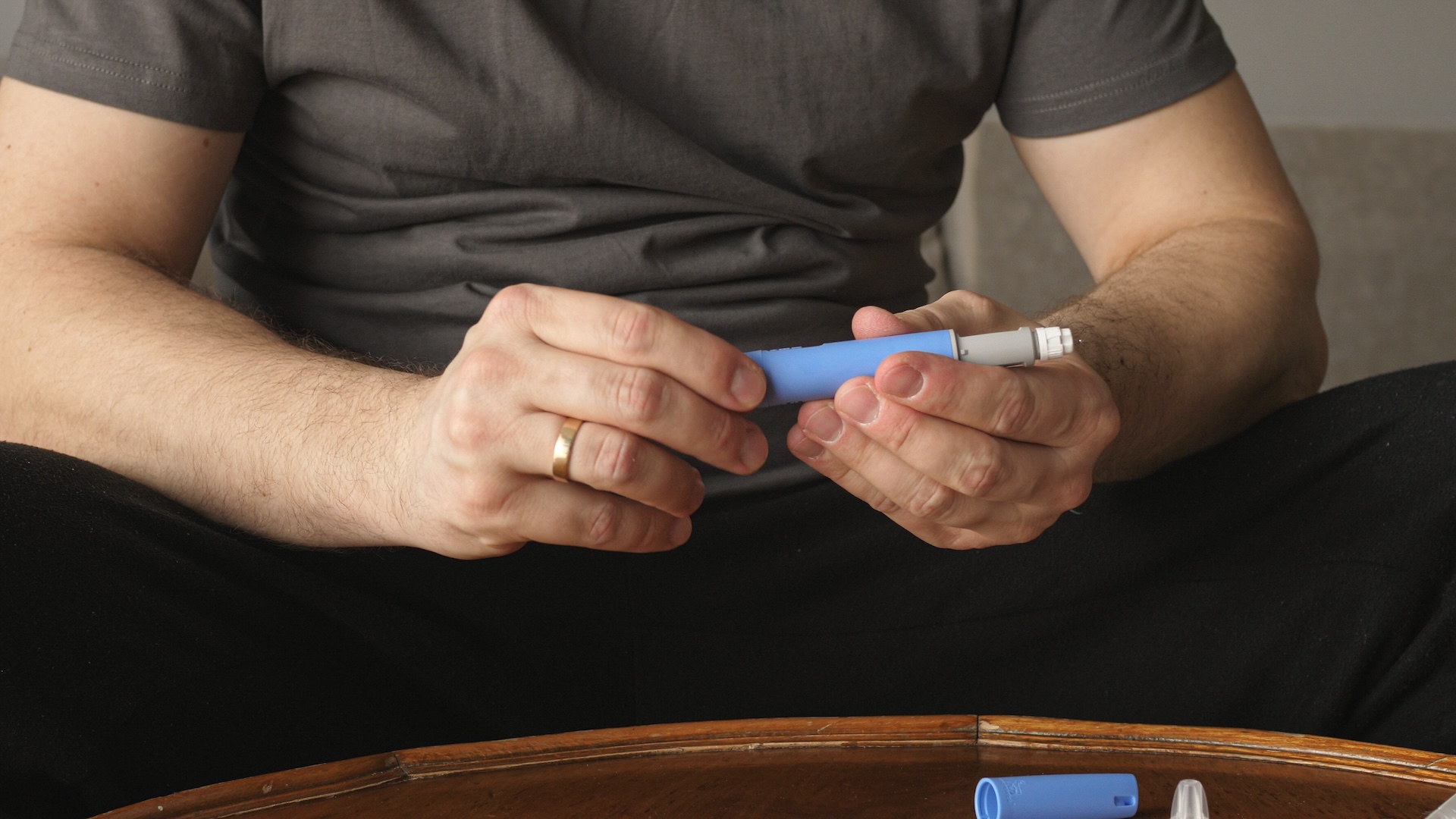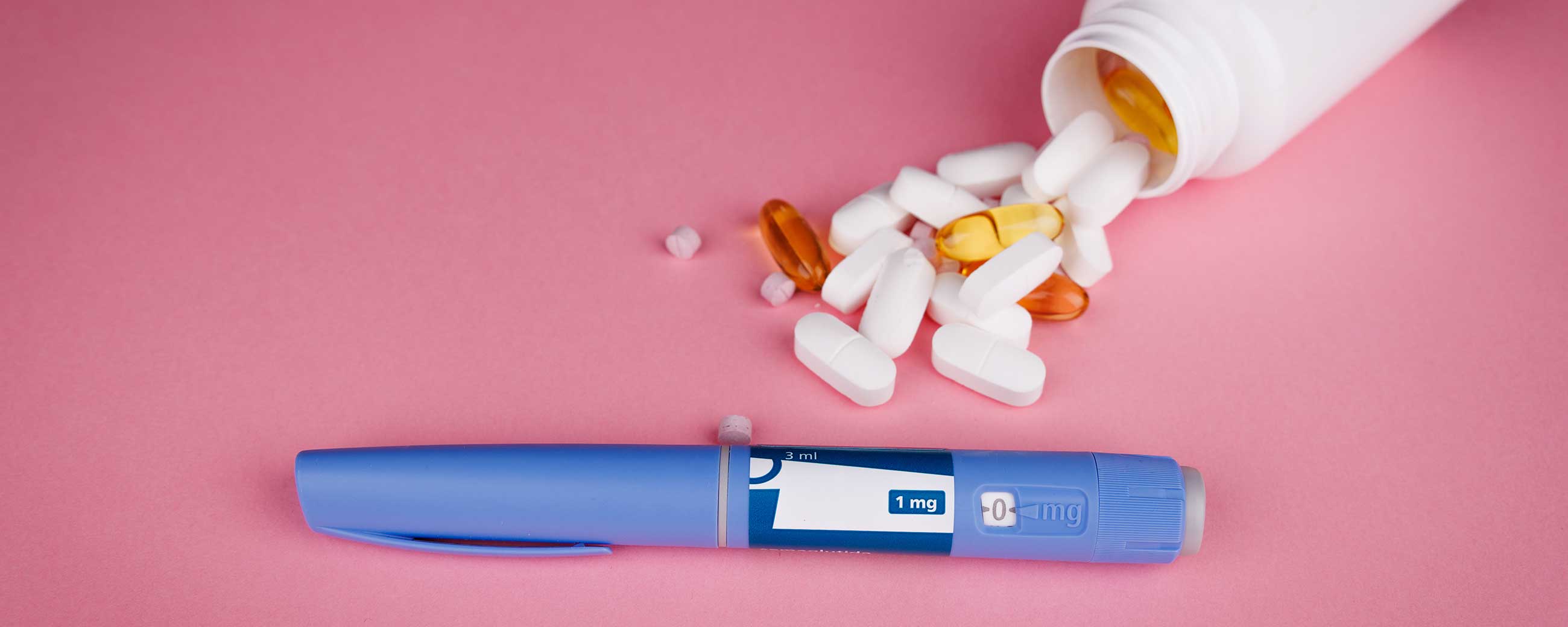
What Happens When You Stop Taking Ozempic & Other GLP-1s?

You’ve probably heard of Ozempic by now—it's everywhere. Sales have surged over 300% since 2020, and research studies are being published rapidly, though the long-term population-level implications remain unknown. One of the ways GLP-1s like Ozempic work is by slowing gastric emptying, leading to greater feelings of fullness and decreased appetite. For patients with diabetes, the GLP-1 medications improve sugars by helping to rebalance the body’s hormone response to food.
These medications are highly effective for weight loss and blood sugar reduction, and people who have a history of heart disease also have additional cardiovascular benefits. It may seem like these medicines are the silver bullet we’ve been searching for.
However, there are drawbacks to Ozempic and other GLP-1s. They are very expensive, with an average list price of $1,000 per month, and many people experience gastrointestinal side effects severe enough to stop taking the medication. In this article, we’ll discuss what happens when you stop taking GLP-1s and how to discontinue them safely without losing the progress you’ve made.
What happens to your body when you stop taking Ozempic?
One benefit of stopping Ozempic and other GLP-1 medications is that any side effects you may have been experiencing (such as nausea, vomiting, diarrhea, constipation, and abdominal pain) typically subside. These side effects are a common reason many people discontinue these medications.
However, stopping these medications can lead to a rebound in weight and loss of other positive outcomes like blood sugar reduction. According to a 2022 clinical trial, participants who stopped taking GLP-1 medications regained, on average, ⅔ of their prior weight loss at one year.
This rise in weight and blood sugar is partly due to the return of appetite. GLP-1s slow the movement of food out of the stomach, helping you stay full longer. After stopping the medication, people may begin eating more spontaneously, which can lead to weight regain. For those with previously elevated blood sugar, this can cause blood sugar levels to rise again.
Additionally, GLP-1s work in the brain to reduce feelings of hunger. When the medication is stopped, hunger tends to increase, leading to higher food intake. These medications also help regulate blood sugar in response to meals. Without this, blood sugar levels may increase.
Can I stop taking Ozempic & other GLP-1s suddenly?
If you are experiencing significant side effects from Ozempic or other GLP-1s, such as nausea or vomiting, it is important to contact your healthcare provider immediately. They can help determine the best way to stop the medication and may suggest gradually reducing your dose to minimize potential issues.
Some drawbacks of suddenly stopping GLP-1s include increased appetite and weight gain that can happen quickly, although this varies from person to person. People with diabetes may notice their blood sugar increases as well. For these reasons, it’s best to discontinue the medication safely under your healthcare provider's guidance.
How to Stop Taking Ozempic Safely
Stopping Ozempic and other GLP-1s should be done in a way that minimizes weight regain and blood sugar fluctuations. For this, you need a well-thought-out plan that is medically supervised. Abruptly stopping can lead to reverting to previous eating habits, weight gain, and blood sugar instability. To maintain healthy eating habits, work with a nutrition professional and consult your doctor, as they may need to adjust other diabetes medications. Since GLP-1s may have reduced your appetite, you'll need a strategy to manage increased hunger. Incorporate regular exercise, including strength training with free weights, resistance bands, bodyweight exercises, or machines, to boost muscle mass preservation. Before starting any new exercise routine, consult your doctor to ensure it's safe for you.
A lower-carb, higher-fat eating plan can help with weight loss or maintenance without increasing hunger, which is especially important when stopping GLP-1s. Groundbreaking new research shows that Virta's personalized nutrition guidance supports a safe and effective transition off GLP-1s. Members who maintained a lower-carb eating plan with coaching support lost, on average, the same amount of weight whether they remained on a GLP-1 or stopped taking it.
The Takeaway
With the right strategy and support, continuing to lose weight without GLP-1s is achievable with Virta!
Stopping Ozempic and other GLP-1s comes with benefits and drawbacks, but with support and an optimal nutrition strategy, it’s possible to come off of GLP-1s safely, effectively, and without regaining weight.
If you are diagnosed with type 2 diabetes and want to live a healthier lifestyle, Virta Health may be able to help. By making healthy lifestyle changes in a medical setting with supportive resources like 1:1 virtual coaching, you can regain control of your health and feel like yourself again. See if you’re eligible for Virta Health here.
This blog is intended for informational purposes only and is not meant to be a substitute for professional medical advice, diagnosis, or treatment. Always seek the advice of your physician or other qualified health provider with any questions you may have regarding a medical condition or any advice relating to your health. View full disclaimer
Are you living with type 2 diabetes, prediabetes, or unwanted weight?








